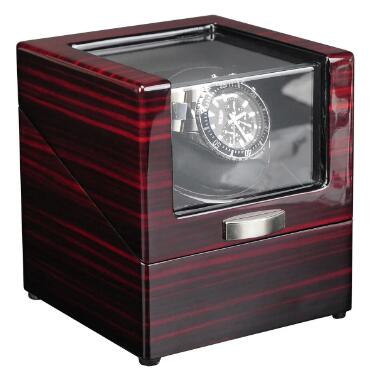Welcome to our comprehensive guide on how long to leave a watch in a watch winder! As experts in the world of horology, we understand the importance of maintaining the accuracy and longevity of your cherished timepieces.
What is a Watch Winder?
A watch winder is a device designed to mimic the natural movement of a wrist, ensuring that automatic or self-winding watches remain fully wound even when not in use. By rotating the timepiece gently, a watch winder prevents the watch's mainspring from losing tension and keeps it running smoothly.

The Purpose of a Watch Winder
The primary purpose of a watch winder is to preserve the accuracy and functionality of automatic watches. When a self-winding watch is not worn regularly, it gradually loses its power reserve and may stop running altogether. By utilizing a watch winder, watch enthusiasts can ensure that their timepieces are always ready to be worn without the need for manual winding or resetting.
Optimal Duration for Watch Winding
General Recommendations
While there is no one-size-fits-all answer to how long you should leave your watch in a watch winder, we can provide some general guidelines based on industry recommendations. It's important to note that these recommendations may vary depending on the specific watch model and manufacturer's instructions. Always refer to the user manual or consult with a professional watchmaker for precise guidelines.
Daily Usage Period
To maintain the accuracy and longevity of your automatic watch, it is generally recommended to use a watch winder for a daily cycle of 8 to 12 hours. This duration allows the watch to wind fully and keeps it running smoothly. However, it's crucial to strike a balance and avoid excessive winding, as it may lead to unnecessary wear on the movement components.
Rest Periods
Just like us, watches need rest too! To prevent overwinding and unnecessary stress on the movement, it is advisable to give your watch some downtime. After the daily winding cycle, consider allowing your timepiece to rest in a stationary position for approximately 12 hours. This period gives the watch a chance to relax and maintain its overall health.
Manufacturer Recommendations
Each watch manufacturer may have specific guidelines regarding watch winding durations. Some high-end brands provide instructions tailored to their timepieces, accounting for factors like power reserve, movement complexity, and materials used. Always check the manufacturer's recommendations to ensure you follow the best practices for your specific watch.
Factors to Consider
Power Reserve
The power reserve of a watch refers to the duration it can run without additional winding. It varies across different models and can range from a few hours to several days. Consider the power reserve of your watch when deciding on the winding duration. If your watch has a longer power reserve, you may need less time in the watch winder to keep it fully wound.
Complications and Movements
Complications, such as chronographs, perpetual calendars, or moon phases, often require additional energy to operate. Watches with complex movements may have different winding requirements compared to simple three-hand watches. Take into account the specific features and complications of your timepiece when determining the optimal winding duration.
Materials and Lubrication
The materials and lubrication used within a watch can impact its performance and longevity. For instance, lubricants may degrade over time, affecting the smooth operation of the movement. If your watch contains delicate materials or special lubrication, it's essential to follow the manufacturer's instructions regarding watch winding and maintenance.
Conclusion
In conclusion, the duration for which you should leave a watch in a watch winder depends on various factors, including daily usage periods, rest periods, manufacturer recommendations, power reserve, complications, and materials used. By understanding these considerations and following best practices, you can ensure that your cherished timepiece remains accurate, functional, and protected for years to come.
Remember, it's always advisable to consult the watch's user manual or seek advice from a reputable watchmaker to tailor the winding duration to your specific timepiece. We are a watch winder supplier. If you are interested in our products, please contact us now!



Comments
All Comments (0)